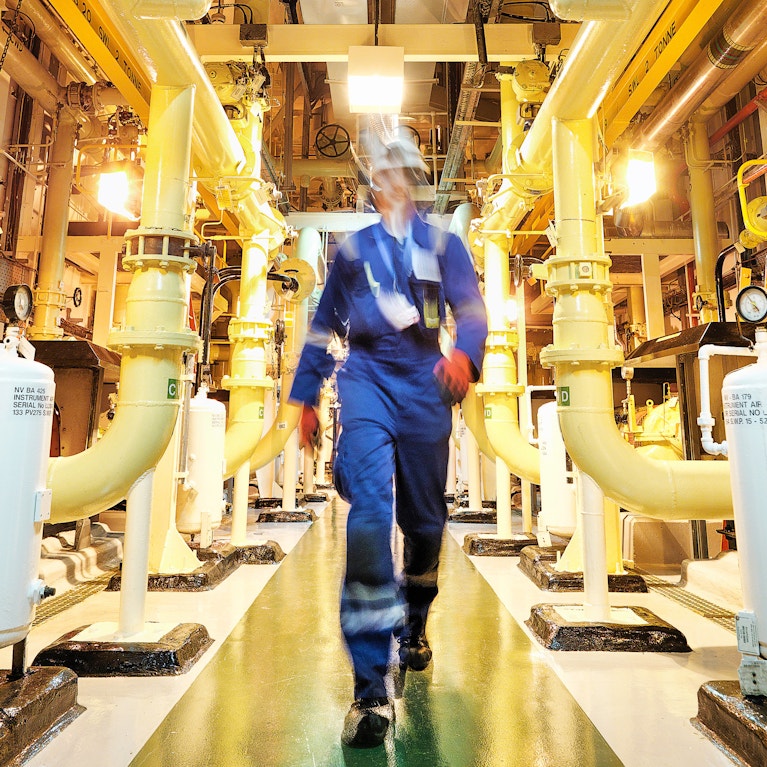
HYDRA
Building psychological safety to sustain team performance
Tags
The concept of psychological safety is a well-established marker of high-performing teams. But achieving and maintaining a psychologically safe culture isn’t always easy. Especially when you bring together people from different organisations, mixing military, civilian, and contractor staff who have experience from defence, security, and construction sectors.
HYDRA is a team focused on creating new, modern infrastructure across radar sites, supporting the UK’s air defence strategy at the UK Royal Air Force (RAF). In a high-pressure working environment, the HYDRA team risked burnout. And to prevent this, it needed to maintain high levels of psychological safety. Therefore, the leaders running the HYDRA programme asked us to help them better understand the concept of psychological safety and how it could help develop a sustainable, high-performing team.
“Psychological safety is the extent to which people in teams feel like they can take interpersonal risks, like speaking up about a concern, or contributing ideas,” said Siana Byfield, Psychological Safety expert, PA. “It’s the extent to which you can fully participate in a team and be yourself.”
It’s a key enabler for high-performing teams and has been linked to increased creativity, team wellbeing, and can help issues get raised (and dealt with) sooner. We explored the extent to which it existed within the Programme HYDRA team, and what contributed and inhibited it.
Together with HYDRA, we explored the data they had, and came up with an action plan built around a menu of 50 different possible interventions to build on their success. Leaders chose from the range of interventions including the development of a Team Charter that amplifies the strengths of the HYDRA team and preserves its high-performing culture.

Key successes
- HYDRA established a Team Charter that captures and amplifies the team’s strengths and ensures that the best aspects of the culture could endure changes in personnel.
- We created a shared understanding of team member’s individual strengths and how these impacted on team dynamics and roles, enabling HYDRA colleagues to work together more effectively
- Identified opportunities to strengthen psychological safety to achieve sustainable high performance through regular programme activities
Building from a strong platform
The first step was to understand what was working well. HYDRA was already a successful team, delivering in spite of the impact of COVID-19 on work conditions. However, there remained substantial risks to the sustainability of this success. Expectations were increasing, and there were changes to the programme environment, potential churn within the team, and a requirement for individuals to work long hours. So, attention turned to exploring how enhancing psychological safety could protect wellbeing and productivity within the team. It was important that the team’s successful delivery record could be sustained and ensure that future success could be based on a more deliberate approach, and not reliant on individual personalities.
From the workshop, we created a list of potential interventions for the team to choose from, seeing what resonated, and where they could drive improvement themselves, or needed outside help. For example, they recognised the need for a team charter that could be used across the programme, for anyone and everyone involved in the work. This was rolled out across the sites, and every worker and visitor was fully briefed on it.
“The team charter has been a key benefit enabler,” said Group Captain Iain Lunan, RAF, “It crystallised what psychological safety means, and how we can expect people to operate.”
Working with a ‘pre-mortem’ process, we also supported the team to assess risk differently, for example, by imagining that a piece of work had failed, and looking back at what might have gone wrong. This was a very sensitive topic for the team: talking about failure and worst-case scenarios isn’t the most comfortable activity. By building up trust, we could open difficult conversations, and ultimately prevent work from going unexpectedly awry. It also enabled all the team to use their collective efforts to propose mitigations to risks that had been identified together.
Creating trust, supporting growth
Leaders play a critical role in creating the conditions that ensure psychological safety can work and it was one-to-one coaching that made the difference in this case. This was an opt-in process, and every individual had the opportunity to meet our coaches so they could choose the right person to work with. We had to bring people along with us. It helped that our insights and interventions came from a varied and expert team, including a psychologist, and a team member bringing experience from elite sport.
Having expert advice has been critical. Psychological safety isn’t something you can read a book on; it needs an objective set of professionals who are experienced and knowledgeable about the subject to assess where you and your team are, to tell you where you need to go”
One of the main obstacles to success was the discrepancy in working cultures between the different teams. For example, where a team member came from a different department, the culture of their home department had an impact. If they went back to their own manager, they might not get the same level of support. To tackle this, we made a concerted effort to bridge the cultural divide between teams by encouraging deference to expertise rather than hierarchy. This approach made collaboration much smoother as well as promoting a climate of psychological safety.
Seeing the impact of psychological safety across the programme
As a result of the work, HYDRA saw real change in the leadership behaviours, thanks to high levels of trust and positive relationships. For example, changes in how the team responded to bad news. Previously, the team spent a lot of time preparing for conversations where they might have to deliver challenging news. By giving the leaders different ways to respond, it freed the team up to share more honestly. And we also built resilience in the team, helping people to deal with challenges.
We’ve been able to open up lines of communication for people to put their hand up and say there’s a problem, and by bringing those issues up earlier, we’ve been able to resolve them and keep the programme on track.”
One learning for the leadership was recognising that not everyone works in the same way. We were able to look at the points of friction in communications so leaders could adapt how they communicated with different people. This also meant appreciating different strengths and roles – recognising that people could play different roles regardless of their rank. And that with a programme involving civilians, military, and contractors, people would be coming from different cultures. “It’s helped us understand how to get the best out of each other, and the best out of the team,” said Lizzie Cooper, Senior Project Manager, HYDRA.
The positive impact of the project had a ripple effect, too. On one site visit, we spoke to employees at various levels who were all able to articulate psychological safety. Ultimately, the work is continuing to support a high-performing team and a healthy culture of trust and openness.
Explore more







